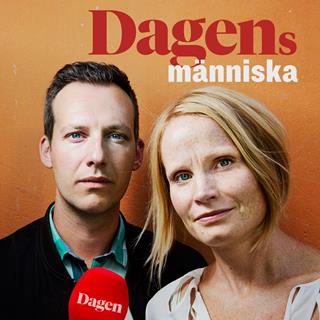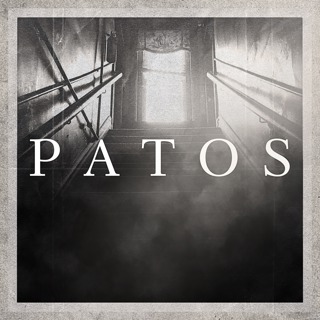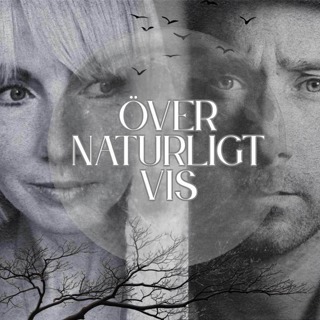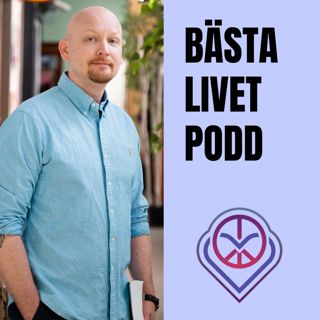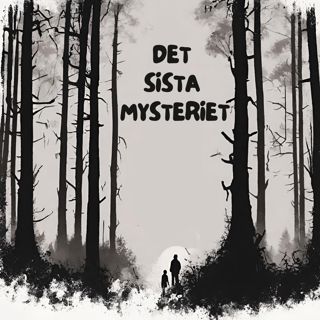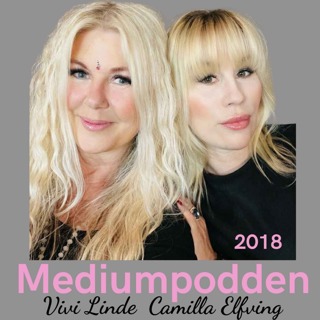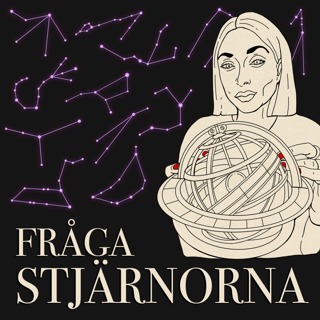![Summer Unwind: Documentary Film [Summer Unwind 3/3]](https://cdn.podme.com/podcast-images/D79089FBEF78B78B9B1A2A8AFD27F6A1_small.jpg)
Summer Unwind: Documentary Film [Summer Unwind 3/3]
In this episode of the 18Forty Podcast, we talk to Rachel Grady - documentary filmmaker of One of Us and Jesus Camp - about the expressive power of documentaries.While fiction and non-fiction literature are powerful creative tools to explore an issue, documentaries have a unique power to portray communities from the inside. And while these portrayals may be uniquely powerful, they can also be uniquely controversial.- What can documentaries achieve that other mediums can’t?- How can documentaries help their audiences explore unfamiliar communities?- How are documentaries suited to exploring religious communities specifically?Tune in to hear a conversation on documentary filmmaking, and for Rachel's recommendations for which documentaries you should watch next.For more, visit https://18forty.org/podcast/rachel-grady-documentary-film/.Become a supporter of this podcast: https://www.spreaker.com/podcast/18forty-podcast--4344730/support.
9 Aug 202153min
![Summer Unwind: Fiction [Summer Unwind 2/3]](https://cdn.podme.com/podcast-images/D79089FBEF78B78B9B1A2A8AFD27F6A1_small.jpg)
Summer Unwind: Fiction [Summer Unwind 2/3]
In this episode of the 18Forty Podcast, we talk to David Hopen - law student and author of The Orchard - about finding truth in fiction, and particularly in myths.Though fiction and myths are by definition not true, they can still have great significance. Religious stories in particular can help guide us regardless of whether or not they’re literally true. In his book The Orchard, David tries to illustrate this, using fiction to tell deep truths about the place myth can have in the modern world.- How can fiction tell truths despite it not being true by definition?- How can myths help forge our identities?- What truths did David try to tell in The Orchard?Tune in to hear a conversation on fiction and myths.References:The Orchard by David Hopen https://www.amazon.com/Orchard-Novel-David-Hopen/dp/0062974742The Client by John Grisham https://www.amazon.com/Client-Novel-John-Grisham/dp/0345531922Marvin Redpost: Why Pick on Me? By Louis Sachar https://www.amazon.com/Why-Pick-Marvin-Redpost-paper/dp/0679819479Sideways Stories from Wayside School by Louis Sachar https://www.amazon.com/Sideways-Stories-Wayside-School-Sachar/dp/0380731487Matilda by Roald Dahl https://www.amazon.com/Matilda-Roald-Dahl/dp/0670824399Molly’s Pilgrim by Barbara Cohen, Jennifer Bricking https://www.amazon.com/Mollys-Pilgrim-Barbara-Cohen/dp/0062870947The Secret History by Donna Tartt https://www.amazon.com/Secret-History-Donna-Tartt/dp/1400031702Here I Am by Jonathan Safran Foer https://www.amazon.com/Here-Am-Jonathan-Safran-Foer/dp/1250135753On Beauty by Zadie Smith https://www.amazon.com/Beauty-Novel-Zadie-Smith/dp/0143037749With All My Heart, With All My Soul by B. D. Da’Ehu https://www.amazon.com/All-My-Heart-Soul/dp/1880880016Bad Jews by Joshua Harmon https://www.amazon.com/Bad-Jews-Joshua-Harmon/dp/0573702578What We Talk About When We Talk About Anne Frank by Nathan Englander https://www.amazon.com/What-Talk-About-When-Frank/dp/0307949605What We Talk About When We Talk About Love by Raymond Carver https://www.amazon.com/What-Talk-About-When-Love/dp/0679723056For more, visit https://18forty.org/podcast/david-hopen-fiction/.Become a supporter of this podcast: https://www.spreaker.com/podcast/18forty-podcast--4344730/support.
3 Aug 202154min
![Avital Chizhik-Goldschmidt: Non-Fiction [Summer Unwind 1/3]](https://cdn.podme.com/podcast-images/D79089FBEF78B78B9B1A2A8AFD27F6A1_small.jpg)
Avital Chizhik-Goldschmidt: Non-Fiction [Summer Unwind 1/3]
In this episode of the 18Forty Podcast, we talk to Avital Chizhik-Goldschmidt - journalist - about her relationship with writing.Having appeared in publications like the New York Times and Haaretz, Avital is an accomplished author. Writing since her childhood, she has found inspiration in a variety of arenas, like reporting, Judaism, and advocacy.- What inspired Avital to start writing, and how did she turn it into a career?- What are some of the challenges of publishing in the public eye?- How does Avital get ideas about what to write about?- Why does she find it meaningful?Tune in to hear a conversation on non-fiction writing, and to hear about her favorite non-fiction reads.References:Tefillin in a Brown Paper Bag by Rabbi Emanuel Feldman https://traditiononline.org/tefillin-in-a-brown-paper-bag/For more, visit https://18forty.org/podcast/avital-chizhik-goldschmidt-non-fiction/.Become a supporter of this podcast: https://www.spreaker.com/podcast/18forty-podcast--4344730/support.
27 Juli 20211h 22min
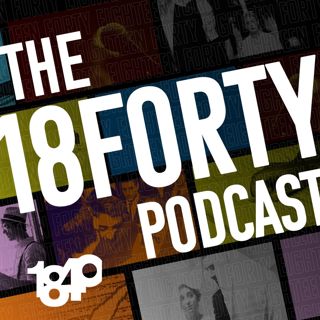
On Loss: A Parent
In this episode of the 18Forty Podcast, we talk to Dani Ritholtz - rabbi and author - about the loss of his father to further explore Tisha B’Av’s relationship to loss.Dani Ritholtz lost his father to Pancreatic cancer in 2014. As part of his grieving process, he wrote a book exploring the development of his relationship to his loss throughout the ordeal. Here Dani talks about the book and its subject matter: how he dealt with the loss of his father.- How does it feel for a family member to battle a possibly fatal illness?- How did Dani and those around him cope with their loss?- What effects did it have on their mental health?- Why did Dani write his book?Tune in to hear a conversation on grief and coping.Musical Credit:Eim Eshkachech by Itzhak Azulai https://www.youtube.com/watch?v=Z0tldz_-0yUReferences:As a Ram Yearns for the Brook by Dani Ritholtz https://www.amazon.com/As-Ram-Yearns-Brook-Journey-ebook/dp/B08FBCX11ZTime Travel: A History by James Gleick https://www.amazon.com/Time-Travel-History-James-Gleick/dp/0307908798Kol Dodi Dofek by Rav Joseph B. Soloveitchik https://www.amazon.com/Kol-Dodi-Dofek-Listen-Beloved/dp/0881258970Become a supporter of this podcast: https://www.spreaker.com/podcast/18forty-podcast--4344730/support.
16 Juli 20211h 17min

On Loss: A Spouse
In this episode of the 18Forty Podcast, we talk to Rabbi Josh Grajower - rabbi and educator - about the loss of his wife, as well as the loss that Tisha B’Av represents for the Jewish People.The Jewish people mourn every year on Tisha B’Av, but it can still be hard to connect with the feelings of the day. Mourning is felt most strongly with those closest to us, and while the things we mourn on Tisha B’Av are of great religious and historical significance, they can feel foreign. Rabbi Grajower lost his wife, Danielle Grajower, giving him intense insight into the mourning process.- How does it feel to lose someone close to you?- How do you deal with the finality?- How does time affect the emotional wound?- How can your loss affect your relationship with God?Tune in to hear a conversation on loss and mourning.Musical Credit:Eim Eshkachech by Itzhak Azulai https://www.youtube.com/watch?v=Z0tldz_-0yUReferences:Holocaust Commemoration and Tish'a be-Av: The Debate Over "Yom ha-Sho'a" by Rabbi Jacob J. Schacter https://www.jstor.org/stable/23263711A Grief Observed by CS Lewis https://www.amazon.com/Grief-Observed-C-S-Lewis/dp/0060652381It’s OK That You’re Not OK by Megan Devine https://www.amazon.com/Its-That-Youre-Not-Understand/dp/1622039076The Unwinding of a Miracle by Julie Yip-Williamshttps://www.amazon.com/Unwinding-Miracle-Memoir-Death-Everything/dp/0525511350Become a supporter of this podcast: https://www.spreaker.com/podcast/18forty-podcast--4344730/support.
13 Juli 20211h 14min

Jewish Peoplehood Roundup
In this episode of the 18Forty Podcast, our host, David Bashevkin, reflects on 18Forty’s Jewish peoplehood episodes.David reassesses 18Forty’s Jewish peoplehood topic from September 2020, which featured Rav Aaron Lopiansky, Laura Adkins, Bethany Mandel, and Samuel Freedman. Using highlight clips from those episodes, David explores what brings together a group of people to form a peoplehood, the ways the Jewish community is divided, and the effect these divisions have on the larger people.- Why did 18Forty choose this topic?- What constitutes a peoplehood?- How does a peoplehood remain united in the face of internal conflict?- Can it overcome division, even when the division stems from conflicting, deep-seated values, to remain united?- Can someone truly love a whole nation?Tune in to hear David reflect on 18Forty’s Jewish peoplehood exploration.For more, visit https://18forty.org/podcast/jewish-peoplehood-roundup/.Become a supporter of this podcast: https://www.spreaker.com/podcast/18forty-podcast--4344730/support.
6 Juli 20211h 16min

Comedy Roundup
In this episode of the 18Forty Podcast, we sit down with our host, David Bashevkin, to reflect on 18Forty’s comedy episodes.David revisits 18Forty’s comedy exploration from July of 2020, featuring comedians Gary Gulman and Leah Forster and Rabbi Daniel Feldman. David once again explores the connections between comedy and life, and how comedy can help cope with tragedy. He also explores some of the qualities of Jewish humor.- Why did 18Forty choose comedy as a topic, and why so early?- What life lessons can comedy teach?- What are some of the characteristics of Jewish comedy and Jewish comedians?Tune in to hear David reflect on 18Forty’s comedy topic.References:https://natebargatze.com/https://en.wikipedia.org/wiki/Mitch_Hedberghttp://www.joanrivers.com/https://18forty.org/articles/gary-gulman-this-impossible-life/The Most Human Human by Brian Christian https://www.amazon.com/Most-Human-Talking-Computers-Teaches-ebook/dp/B004FEG2S6Man’s Search for Meaning by Viktor Frankl https://www.amazon.com/Mans-Search-Meaning-Viktor-Frankl/dp/0807014273/ref=tmm_pap_swatch_0?_encoding=UTF8&qid=&sr= For more, visit https://18forty.org/podcast/comedy-roundup/.Become a supporter of this podcast: https://www.spreaker.com/podcast/18forty-podcast--4344730/support.
29 Juni 20211h 10min

David Bashevkin: The Anniversary Episode
In this anniversary episode of the 18Forty Podcast, we sit down with our host, David Bashevkin, to reflect on the last year of episodes.18Forty has explored many important and interesting topics and has helped build a community of people interested in exploring these ideas. But it has been a big undertaking involving many unforeseen factors and complications.- How has 18Forty decided what topics and guests to feature?- What has David learned about the process of interviewing?- How has 18Forty been affected by the community growing around it?- How has 18Forty dealt with controversy?Tune in to hear David reflect on 18Forty’s beginning and growth over the last year.References:Top Five by David Bashevkin https://www.amazon.com/Top-5-Dovid-Bashevkin/dp/1600918174For more, visit https://18forty.org/Become a supporter of this podcast: https://www.spreaker.com/podcast/18forty-podcast--4344730/support.
22 Juni 202157min











